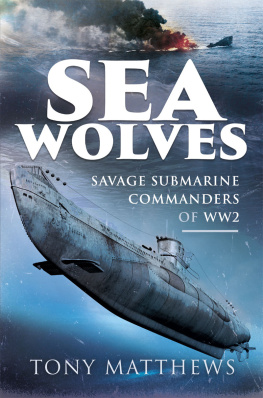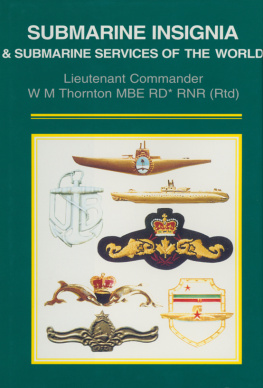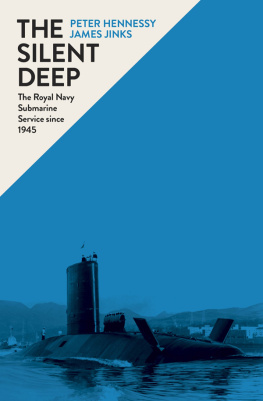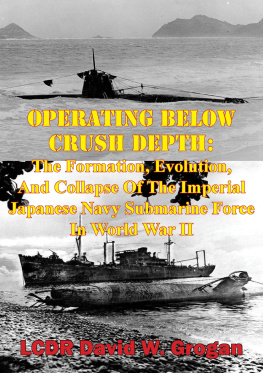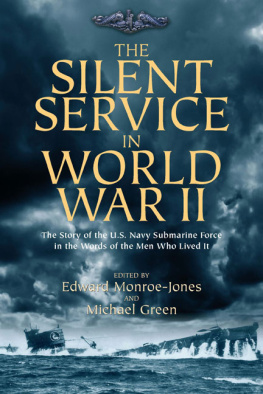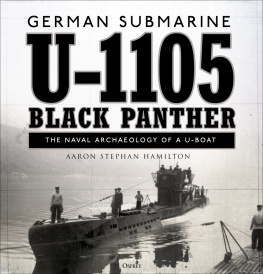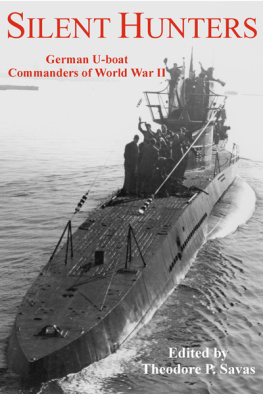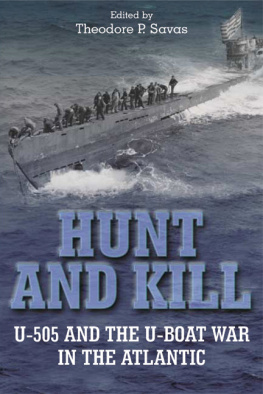Neither Sharks Nor Wolves
Neither Sharks Nor Wolves
The Men of Nazi Germanys U-boat Arm, 19391945
TIMOTHY P. MULLIGAN
Naval Institute Press Annapolis, Maryland
The latest edition of this book has been brought to publication with the generous assistance of Marguerite and Gerry Lenfest.
Naval Institute Press
291 Wood Road
Annapolis, MD 21402
1999 by Timothy P. Mulligan
All rights reserved. No part of this book may be reproduced or utilized in any form or by any means, electronic or mechanical, including photocopying and recording, or by any information storage and retrieval system, without permission in writing from the publisher.
First Naval Institute Press paperback edition published 2011.
ISBN 978-1-61251-080-4
The Library of Congress has catalogued the hardcover edition as follows:
Mulligan, Timothy.
Neither sharks nor wolves : the men of Nazi Germanys U-boat arm, 19391945 / Timothy P. Mulligan.
p. cm.
Includes bibliographical references (p.311) and index.
1. World War, 19391945Naval OperationsSubmarine. 2. World War, 19391945Naval operations, German.
I. Title.
D781.M85 1999
940.5451dc21
98-53659
19 18 17 16 15 14 13 12 11 9 8 7 6 5 4 3 2 1
First printing
To my teachers and mentors, past and present
Contents
More than fifty years after the last German submarine slipped silently into Allied custody at the end of World War II, the U-boat retains its grip on the popular imagination. New books on U-boat aces and battles continue to appear; cable television regularly offers new film documentaries; the making of a domestic feature film on the subject commands a cover story in Germanys leading news magazine; and the internet features a growing number of U-boat websites. On display at Chicagos Museum of Science and Industry, the U-505 draws hundreds of thousands of visitors each year, most of them born long after the submarines capture at sea by U.S. naval forces in June 1944. In Halifax, Nova Scotia, older residents still relate stories of captured U-boat crewmen with tickets to local dances in their pockets. And New Zealand newspapers investigate allegations that the crew of U-862 came ashore to milk cows in sight of the port of Napier.
The last examples illustrate how fact and fiction have blended into legend, the apocrypha and exaggerations of which do not obscure the truth that German submariners carried the war to the shores of every Allied power. Alone among the branches of the Wehrmacht, U-boat crews fought their battles without respite from the first day of the war to the last, a period of five years and eight months that spanned the Second World Wars longest campaign. Yet their ability to project an image of omnipresent menace contrasts sharply with the reality Die they did, whether gallantly or not, and at a horrific rate. During World War II U-boat crews endured losses unequaled in modern military history, yet continued to put out to sea in search of targets through the last hours of the conflict.
Ironically those who manned the U-boats remain almost invisible, with little more substance than the ghostly images of bearded young men glimpsed briefly in stock newsreel footage. No roses bloom on a sailors grave, laments an old German seafaring song, an appropriate description as well for the state of research into their collective identity. Biographical studies and memoirs focus on the aces, the submarine commanders skillful or fortunate enough to have experienced success in sinking Allied ships and who have dominated U-boat historiography since the First World War. In these accounts, and in narratives of convoy battles and technical treatments of U-boat types, the crewmen who made possible those successes and operated the complex equipment rarely emerge from the background except as the source of colorful anecdotes or sweeping generalizations.
Even in the best examples of these categories, the portrayals of U-boat officers and men are limited in time or space, crews manning individual submarines or fighting specific battles. Incidents are generalized and crew characteristics are assumed as representative of the German submarine service throughout the war, rather than as unique to a particular period. When treated collectively, U-boat crews have been alternately hailed as heroes, branded as criminals, and mourned as victims; though their ranks included some of each of these, such simplifications reveal much more about the commentators than of the submariners allegedly described. Consistently U-boat sailors have been treated as a single entity rather than as a succession of cohorts that evolved over time, whose character changed as their numbers grew and contracted. Their war is here perceived as one campaign with several phases, in which each unique successive force fought its own war distinct from the others.
This book is an attempt to tell their story.
More specifically, it is an effort to understand the character of the U-boat service. This encompasses the leadership and command of the force, the process by which men were selected and transformed into submariners, and the manner and means by which the U-boat arm fought the war. Above all it is a study of those who manned the U-boatswhere they came from, what occupations they held, which characteristics they shared. For both officers and enlisted men, we shall review their specialized career-tracks in naval service and the associated functions they performed on board a submarine. This study moreover finds new answers to questions that have never been systematically treated, including: How many men served on U-boats? Were they all volunteers? Did morale truly remain high throughout the conflict? And did the U-boat force gradually deteriorate into a childrens crusade?
Our study also addresses the broader context of U-boat warfare and those who waged it. The books twelve chapters are loosely grouped into three parts, the first of which establishes the foundations: the organization and routine of a U-boat crew, the mixed legacies of World War I, and the framework and chronological patterns of the World War II campaign. concern the men themselves, their backgrounds and career specialization, selection and training as submariners, and variations in their ages and combat experience. The final chapters examine specific aspects of the war and their service, including the general conditions of morale, the conduct of submariners toward Allied survivors, and the relationship of the navy to National Socialism, with a concluding summary of their experiences at wars end, in captivity, and during the postwar period. Separate appendices describe the questionnaire survey of U-boat veterans used in this book and the question of numbers and losses in the U-boat service during the war. Scattered throughout are discussions of such familiar issues as Grand Adm. Karl Dnitzs leadership, operations of individual U-boat captains, and characteristics of specific U-boat types, but always linked to our central theme.
This work began as a consequence of the authors earlier research into the story of U-boat ace Werner Henke and his command of U-515. Henkes veteran crew played a crucial role in their mutual success and survival, as reflected in the commanders attempt to maintain his crew intact for as long as possible. A later study indicated that many distinctive characteristics of U-515s crewmen were shared by U-boat sailors in general, leading to the decision to undertake the present effort.


